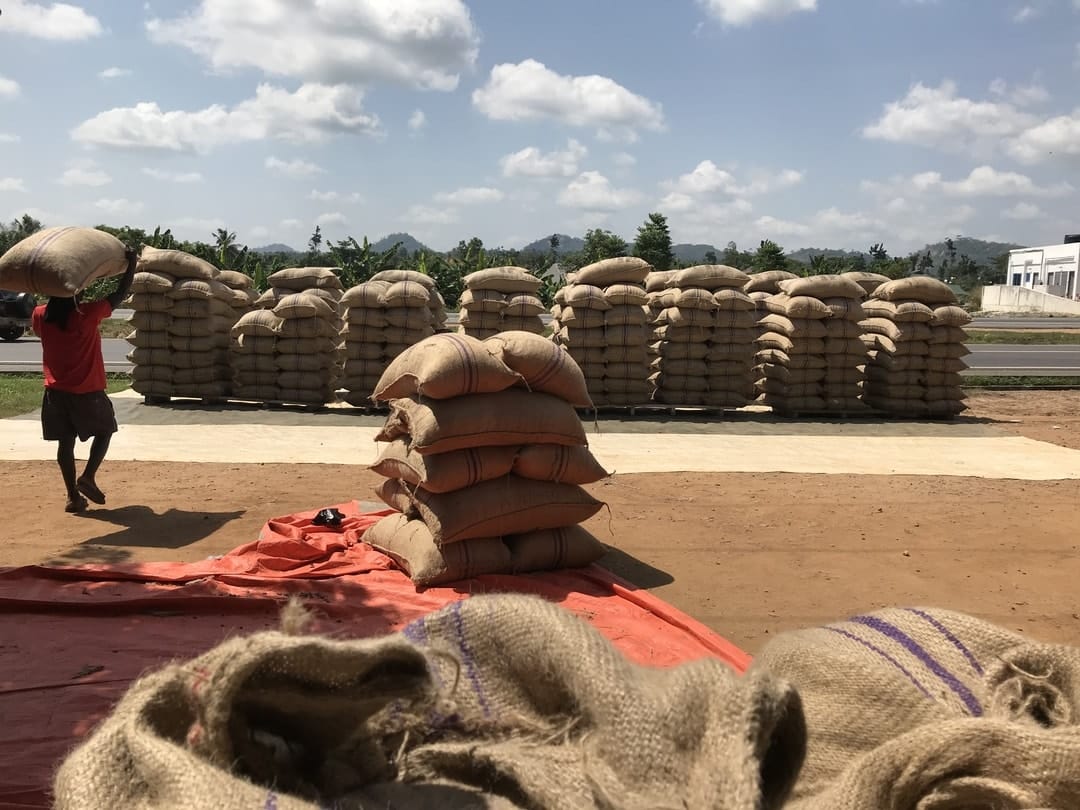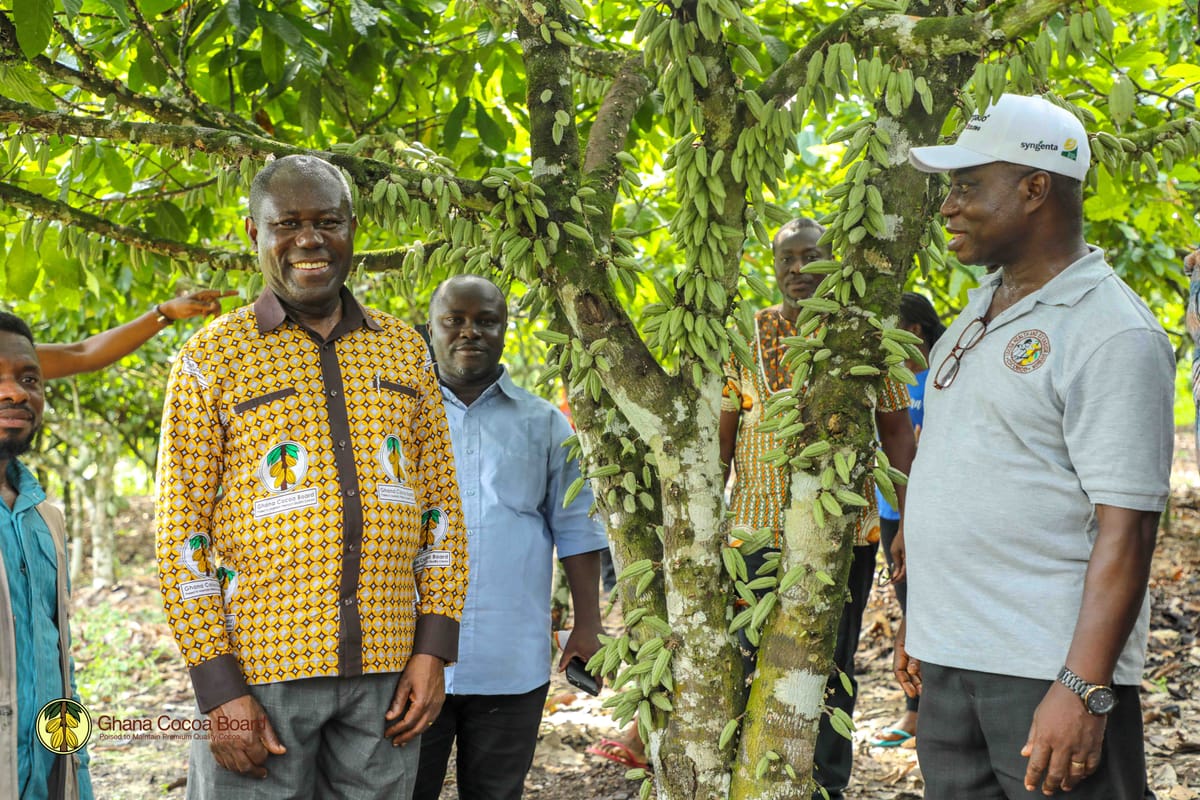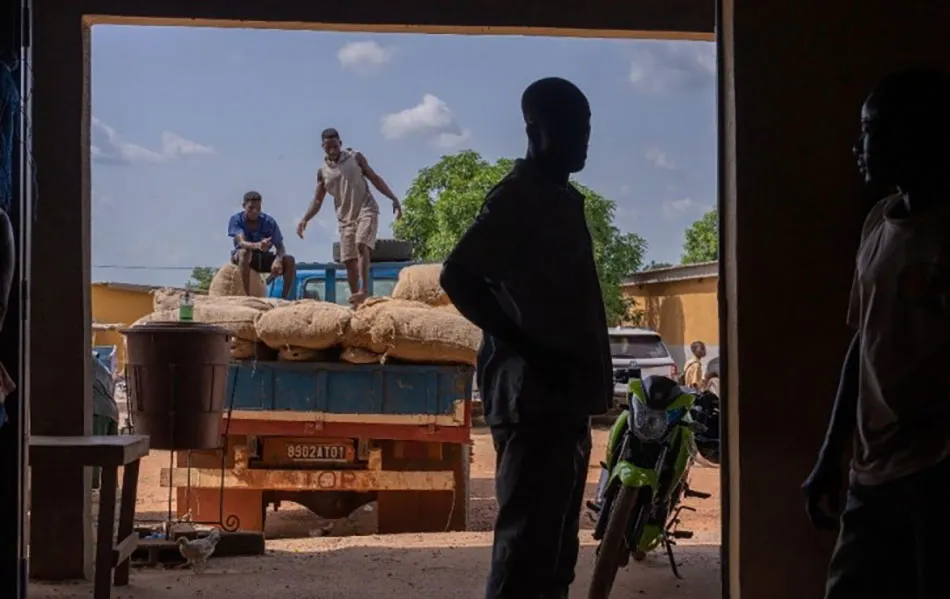A New Path for Ghana's Cocoa Industry?
Ghana is poised for one of the most significant shifts in its cocoa industry for more than 30 years.
The Ghana Cocoa Board (Cocobod) recently announced a bold decision to forgo its traditional syndicated loan borrowing for the upcoming 2024-2025 cocoa crop season, coupled with an ambitious plan to increase the state-guaranteed price paid to cocoa farmers by nearly 45%.
These moves respond to global market dynamics and domestic pressures to improve farmer livelihoods, and they have wide-ranging implications for the future of Ghana’s cocoa sector.
COCOARADAR COMMENT
Ghana’s 2024-2025 cocoa season marks a potential turning point for the country’s cocoa industry. The regulatory body is signaling a desire for greater financial independence and a move toward more sustainable financing models by forgoing syndicated loans. At the same time, the expected 45% increase in the guaranteed price for farmers represents a bold attempt to improve livelihoods, increase production, and ensure the long-term sustainability of the cocoa sector.
While the long-term outcomes of these policies remain to be seen, the government’s actions demonstrate a clear commitment to addressing the needs of cocoa farmers, reducing reliance on external financing, and securing Ghana’s place as a global leader in cocoa production. The success of these policies will depend on Cocobod’s ability to balance financial sustainability with the wellbeing of its farmers and the dynamics of the international cocoa market.
Historical Context of Cocoa Financing in Ghana
Traditionally, Ghana has relied heavily on syndicated loans—international loans secured by multiple financial institutions—to finance the cocoa crop. This financing arrangement, typically arranged at the start of each cocoa season, has been crucial for the purchase and export of cocoa. The syndicated loan, often amounting to over $1 billion, allows Cocobod to purchase cocoa beans from farmers at a guaranteed price and helps in the smooth operation of the entire cocoa value chain, from collection to export.
This arrangement has provided stability for the industry for many years, ensuring that farmers are paid promptly and that the country’s exports meet international demand.
On the downside, it has also made the industry reliant on foreign financing, exposing it to fluctuations in global financial markets and interest rates.
If the government decides to forgo syndicated loans, how will it finance this year's crop season campaign, which officially began on 10 September 2024?
Ghana is set to experience its lowest cocoa output in over two decades, with production expected to be slightly above 600,000 metric tonnes, comparable only to the 2002-2003 cocoa season. While global cocoa production declined in the 2023-2024 cocoa season, the international market responded positively, reaching a record high of $12,261 per tonne in April 2024.
As the Ghana Civil Society Platform (GCCP) noted in a statement earlier this month, Ghanaian farmers did not significantly benefit from these price hikes due to the long-standing cocoa marketing strategy adopted by the Ghana Cocoa Board … “that overly focus on forward sales of beans as against spot sales, which could have ensured that farmers benefitted more from the price hikes.”
The GCCP also commended the government for “finally taking the decision to minimise dependency on ‘foreign financial instruments’ such as syndication of foreign loans for the purchase of cocoa beans and “rather explore a more innovative and logical approach of letting cocoa traders and exporters pre-finance the purchasing of cocoa beans.”
Can Ghana Cocoa Become More Financially self-reliant?
Cocobod has made a significant strategic shift by announcing it will no longer seek a syndicated loan for financing. This demonstrates Ghana’s determination to become more financially self-reliant and reduce its dependence on external creditors.
Still, a major worry is that it could place local licensing buying companies (LBCs) in peril without a safety net to pre-finance their purchases, destabilizing the downstream cocoa supply chain. The multinationals will remain unaffected, but the fate of the Indigenous LBCs is unknown at this stage.
And what of the recent rumours ... was Cocobod seeking loans from traders, allegedly large cocoa and chocolate suppliers/processors, including The Barry Callebaut Group and Olam Group?

“While the move away from international syndicated loans might seem like a bold, liberating and strategic decision, the reality appears to be more reactionary, driven by financial constraints and a lack of immediate viable alternative,” said Kwame Kwarteng, co-Founder, Cocoa & Chocolate, in a post on LinkedIn.
“Seeking loans from your buyer puts back power into the hands of the buyer, hence weakening your negotiation power as the supplier in the process. Cocobod’s dual role as regulator and market player, combined with its semi-autonomous status, has created a system where financial inefficiency and conflicts of interest are inevitable. Until these structural issues are addressed, Cocobod’s ability to effectively manage Ghana’s cocoa sector will remain questioned. The problem isn’t just where the money comes from—it’s how Cocobod operates within the system it controls.”
Cocobod’s chief executive, Joseph Boahen Aidoo, has since rejected claims of syndicated loans for this year’s main cocoa harvest.

From a practical perspective, CocoaRadar understands the decision may stem from concerns over debt sustainability. Ghana has faced fiscal challenges in recent years, with rising national debt and an increasing debt servicing burden. Cocobod’s move could reflect broader efforts by the government to manage its fiscal position more prudently, especially given global economic uncertainties.
By not taking on additional debt for the upcoming season, the government might signal confidence in domestic revenue generation, mainly through cocoa sales and other economic activities. It could also indicate a pivot toward more sustainable cocoa production models that reduce costs and reliance on foreign loans.
Financing Without Syndicated Loans
CocoaRadar views the decision to avoid syndicated loans as raising questions about how Cocobod will finance its operations without the usual influx of funds at the beginning of the season. While it may have alternative financing arrangements or plan to rely more heavily on domestic resources, it will need to ensure that it can still purchase cocoa beans from farmers in a timely manner to maintain their trust in the system.
Market Pressure
The global cocoa market is notoriously volatile, with prices fluctuating based on weather, geopolitical tensions, and global demand. A sharp downturn in global cocoa prices could pressure Cocobod if it is committed to paying farmers a higher guaranteed price. This could potentially lead to financial strains and further deepen the mistrust and lack of confidence in its management among some industry stakeholders.
What do you think? Sign up for the free newsletter to add a comment and join the conversation.


